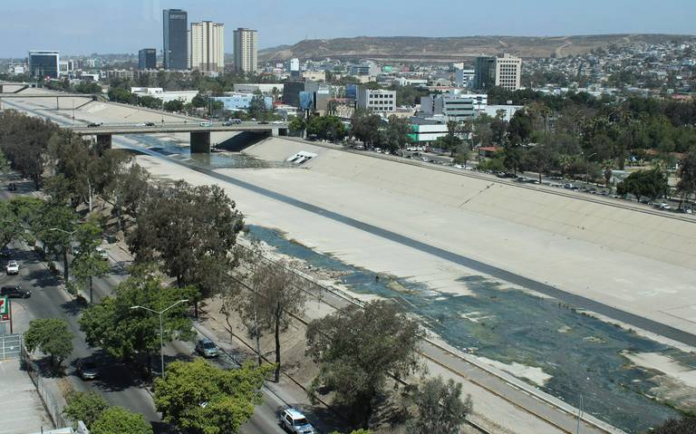“We don’t have water because the water cycle doesn’t give us any,” Durán Cabrera pointed out.
Tijuana.-Due to its natural conditions, the city of Tijuana only has the capacity to supply water to 200,000 inhabitants, that is, only 10% of the current population, said Hernando Durán Cabrera, director of Tijuana Verde.
He mentioned that although the Tijuana River basin extends from the top of the town of El Hongo, located in Tecate, the rain that falls is insufficient for the more than two million inhabitants of the city.
“We don’t have water because the water cycle doesn’t give us any,” Durán Cabrera pointed out.
He explained that when the limit between supply and consumption is exceeded, other water sources must be added, which is why the Colorado River – Tijuana aqueduct was built, but this is also already at the limit of “what it can give us.” in terms of capacity.
“Tijuana is considered among the 10 most difficult cities to obtain water supply by its geographical area,” because “the additional basins are very far away,” he stressed.
A possible alternative to guarantee the liquid to the city is to bring it from other supplies or accounts, but these “are very far away”, which makes this option impossible, said the also former director of the State Commission of Public Services of Tijuana (CESPT).
“We have a great advantage of being surrounded by the Pacific Ocean to desalinate the water, but it is a complicated process because it can damage the environment and is very expensive,” he commented.
He recalled that previously, next to the Playas de Rosarito thermoelectric plant, the “world’s largest” desalination plant was installed and that it generated 200 milliliters per second, but with the construction of the Colorado River aqueduct in the late 1980s, it stopped working. because it was more expensive to operate.
Another solution to the scarcity of water is its treatment and reuse, as is already done in San Diego, where almost half of its population’s consumption is by reuse, although Durán Cabrera pointed out that the installation of these plants are long processes and today the city needs water security.






